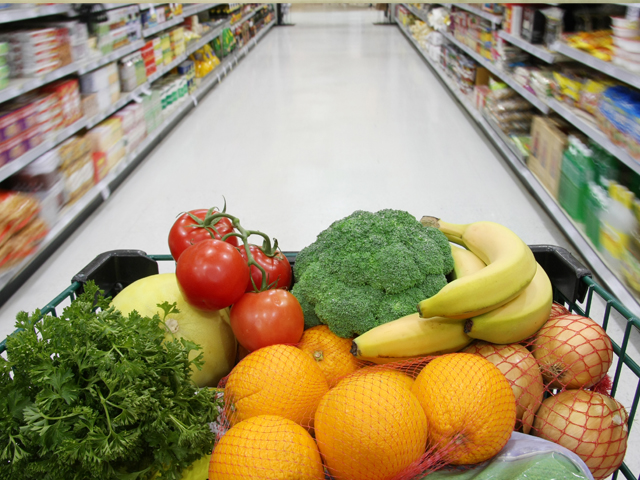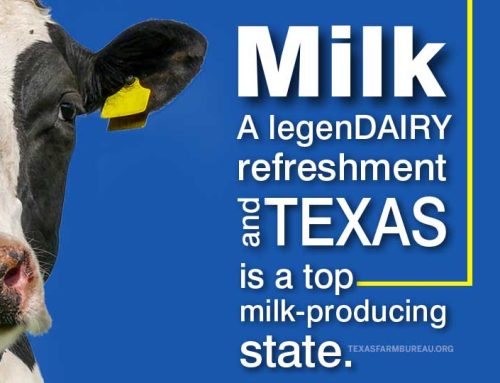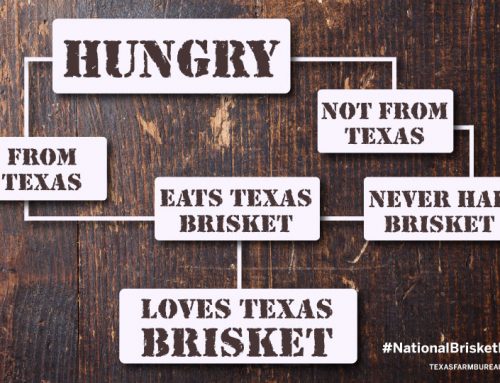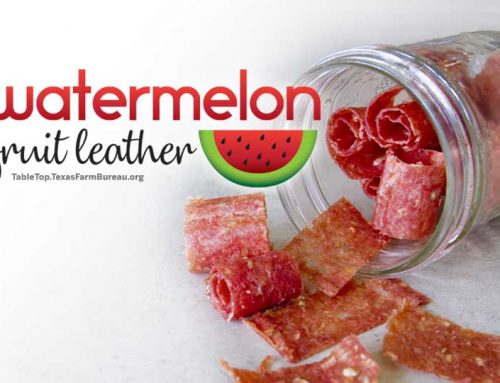By Julie Vrazel
Walk down any grocery store aisle and you’re sure to see a plethora of health food buzzwords. Organic, hormone-free and natural—just to name a few.
These eye-catching phrases are designed to entice us to grab items off the shelf without feeling guilty.
But do shoppers even know what these labels mean?
Oftentimes, they don’t. The buzzwords and healthy sounding declarations have blurred the lines and confusion abounds. I cringe when I walk into the grocery store. I just want to buy safe and affordable food without fighting the health food marketing jargon.
So, beware of the sales pitch for the latest trends and diets. The shelves are crowded with labels of all kinds—some certified by the U.S. Department of Agriculture and others developed by marketing gurus.
Below are a few labels that can mislead consumers in the store.
Natural. No one really knows what “natural” means. There are no standards, nor is there a certification program. Does that mean the other foods are unnatural? Of course not. Natural is just another marketing ploy.
GMO free. Foods made with genetically modified organisms (GMOs) are safe and environmentally friendly. Studies show the nutritional value of GMO-free foods compared to conventionally raised foods isn’t any different.
Gluten free. I’m not sure where this health craze started, but it has increased the awareness of celiac disease, which is caused by eating gluten. Found in wheat, barley and rye, gluten is the ingredient that gives breads and other foods their shape, strength and texture, according to the U.S. Food and Drug Administration. It’s a label that’s important for those with the disease, but is of little concern to the rest.
Hormone free. There is no such thing as hormone free beef, pork or chicken. Whoever markets that is deceitful and dishonest. Consumers are tricked into buying a product that reinforces those myths and gives conventional farming and ranching a bad reputation. All meat has hormones, just like you and I have hormones.
Don’t let these labels cause you to be afraid of your food.
As you walk down the aisle and pull items from the shelf to fill your cart, remember that labels aren’t always what they seem. The truth is, you can be healthy eating a balanced diet with sensible portions and an active lifestyle.
The rest is marketing and political hype. Don’t be misled.











I’m sorry, but you have been misled. Studies NOT suppressed by Monsanto have proved that GMO food disrupts vital gut microbes you need for digestion. Organic farming preserves the land, and doesn’t kill bees. We are not the only creatures that are important on this planet. Please be informed before you spread untruths from the petrochemical agriculture industry. Besides, organic farming is CHEAPER and EASIER in the long run, and you get butterflies!
I wonder why organic always cost more at the store? Hmmmm… I think we have here Marcia, a case of you extrapolating your small acreage experience into a one size fits all world solutions that simply can’t work. I keep posting all this evidence that you ignore…why is that? Cosmos, Forbes, American Scientist…I have all the links that you’ve ignored before. Mainstream all. Yet you whisper “Monsanto!” as if you were conducting some secret exorcism and expect us to run screaming from the room. Really? People are starting to understand the science. It’s just a matter of time before science wins…again. Again, we support organic agriculture. not to the exclusion of all else, but we support it. GMO’s? That’s different…and all of the evidence is pretty much in. GMOs are safe. Time to get used to the idea.
1. I will agree with you that “Natural” is a misused buzzword.
2. Hormone free means no chems fed to the animals, not the animals’ own hormones, duh. You are being completely un-scientific with this statement.
3. Organic means exactly that, and you didn’t even mention it in your article. No pesticides, herbicides, hormones, antibiotics, or other harmful ingredients.
3. I’ve been organic farming for over 40 years, and it’s cheaper, easier, and doesn’t destroy the natural world. I haven’t always eaten perfectly organic, but since I started really paying attention almost a year ago, my fibromyalgia, arthritis, and allergies are GONE (and I’m 62 years old, have had 5 kids, and am back to the size I was in High School).
Marcia, I’m glad we can agree that “natural” is a misused buzzword. But that’s where our agreement ends.
Hormone free doesn’t imply that no hormones were added during the growing process. It simply states hormone free. Therefore, I wanted to be sure you, and other consumers, understand hormone free meat doesn’t exist. “No hormones added” would be a more acceptable label.
Organic agriculture produces food without using most synthetic materials. USDA organic standards state that some substances on the national list may be used in specific situations, i.e. certain crops or up to a maximum amount.
If organic farming is cheaper, then why are organic products more expensive in the grocery store?
I’m glad to hear your issues have disappeared, but are you sure they were only related to your diet?
http://www.science20.com/agricultural_realism/spending_more_for_organic_does_not_buy_you_pesticidefree-136141
Marcia – I am a fan of organic. Not a regular customer, but a fan. I applaud organic producers of all kinds who work hard to raise a product and satisfy demand. Conventional and organic producers can learn from each other. You will only hear me object when bashing the conventional becomes part of the marketing plan.
This is a lie…gmo’s are very bad! Fda scientists reported they found gmo’s to lead to multiple defects and diseases however because of the money link to Monsanto it was silenced….do your own research and learn the true facts.
Here is “my own research” Michelle. Words like “lie” can be thrown around much too casually. The FDA said no such thing. Another myth. Here is a credible and solid report from mainstream Forbes. http://sleuth4health.wordpress.com/2013/07/25/is-gm-food-safe-experts-around-the-globe-answer/ What else you got? From Cosmos magazine http://www.cosmosmagazine.com/opinion/gm-crops-solution-world-food-crisis/ Just saying “Monsanto” is not really an argument. “My own research” also includes personal conversations with hundreds of farmers. I suspect the time I’ve spent in research outweighs yours by a considerable amount. Time to rethink “conventional wisdom” which is not really that wise. It will be interesting to see how you react on the day you learn you’ve just been repeating the mantras of organizations with a fund raising interest. As you say “do your own research.” Don’t just repeat theirs.
Here, by the way, is what the FDA actually says about GMOs from their own site. http://www.fda.gov/food/foodscienceresearch/biotechnology/ucm346030.htm
Marcia,
I am real life honest to goodness full scale farmer. That is how I make my living, and that is how my father, and his father, and his father, and his father made their livings. That is five generations and more than 100 years of farming in my family. I tell you this so that you understand my credibility. Yes, the inputs for organic farming are usually cheaper. However, your gross sales are significantly less. Net profits are very slim, if any. Lets go through a year of organic rice production and take a look at a few of the challenges.
First we put out some chicken manure for fertilizer. Every homeowner within 5 miles calls you to complain about the smell. You cannot have treated seed…so you might get water weevil destruction right out of the gate. You also cannot spray any kind of pre emergent herbicide, so what do you do about the barnyard grass, broadleaf signal grass, bermuda grass or any other grass that can choke the crop out completely in a matter of weeks? You just have to hope you make it.
Lets assume you got the rice sprouted, out of the ground, and growing with very little grass intrusion. But, every time it rains more grass and weeds sprout. Why? Because there are literally billions of grass and weed seeds stockpiled in the soil. Think you can pull them by hand like in your garden? Try that on 1000 acres.
Well, now we have to take the rice crop to flood early in order to kill the grass and weeds. That means using more water (a very precious resource) and burning more fuel or electricity to pump it. We got the rice flooded up early but it will not tiller out as well (less yield) because of the early flood conditions.
Because the crop is being grown organically the plants are very susceptible to disease…and no, your home remedy organic fungicides will not protect a rice crop from fungal diseases like ‘Rice Blast’ which can decimate a crop. Blast attacks late in the season after most of your expenses have already been accrued…and now what? You have spent $500/ac on dead fungus infested rice.
But, lets assume you make it past the fungal diseases, next comes the rice stink bugs. They will sting the grains in the early milk stage and cause them to abort, just producing blank hulls. OR, they will sting the grains in the soft dough stage and leave a distinct black mark on the gain. Now the mill is going to dock your price significantly for stink bug damage because no one wants to buy rice will black specks all over it.
But, once again lets assume you made it through stink bug season. Now its time for harvest…at best you can expect half of a conventional yield and be offered an approximate 30% price premium. Oh, and you also have to find a rice drying and handling facility that is accredited to handle certified organic rice. This is all assuming none of the aforementioned (and dozens of unmentioned) pests or diseases wiped out your crop.
This example is for rice, but it parallels almost all other crops. There are a lot of differences between your back yard and my farm.
In conclusion, organic production is great for your garden. I grow an organic garden oftentimes as well (mostly for the challenge of it). However, organic gardens will not feed the world (at least not the real world in which I live). Conventional agriculture feeds the world and has managed to do so with decreasing arable land and less resources than in previous generations.
Very well said Timothy.